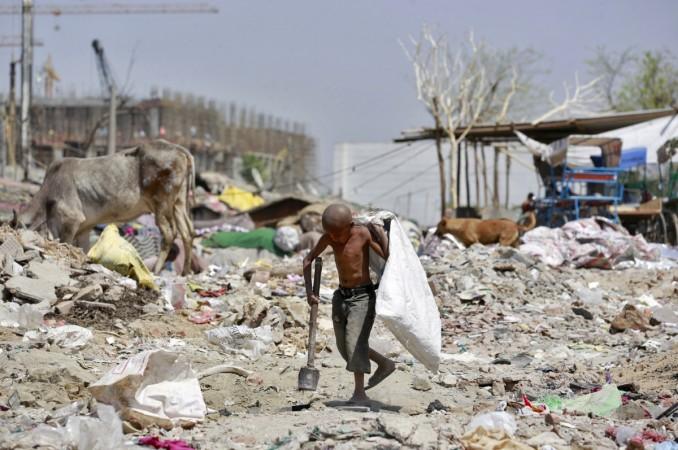
India's 5 lakh child labourers face a serious health risks due to the electronic waste (e-waste) generated in the country, according to a study by the Associated Chambers of Commerce and Industry of India (ASSOCHAM)-Frost and Sullivan that was released on Thursday.
According to the study, child labourers in the age group of 10-14 years who are found engaged in various e-waste dismantling activities, without adequate protection and training in handling and recycling the waste, are at greater health risk.
India is expected to produce 30 lakh metric tonnes (MT) of electronic waste (e-waste) per year by 2018 from the present 18.5 lakh MT.
More than 95 percent of e-waste generated in the country is managed by the unorganised sector and scrap dealers, the study revealed.
E-waste includes discarded computer monitors, motherboards, cathode ray tubes, printed circuit board, mobile phones and chargers, compact discs, headphones, white goods such as liquid crystal display/plasma televisions, air conditioners and refrigerators. These products contain toxic substances, including lead, cadmium, mercury, hexavalent chromium, plastic, polyvinyl chloride and other heavy metals.
"This deadly mix can cause severe health problems in those handling the waste. Printed circuit boards, for instance, contain heavy metals like antimony, gold, silver, chromium, zinc, lead, tin and copper. The method of extracting these materials from circuit boards is highly hazardous and involves heating the metals in the open," BK Rao, chairman of ASSOCHAM Health committee that released the ASSOCHAM paper, said.
The study showed the people who are engaged in recycling e-waste without any proper training, including children, use primitive and hazardous methods like acid stripping and open air incineration for processing e-waste. These methods are highly unsafe and cause pollution by releasing toxins from the e-waste into the environment.
"Exposure can cause headache, irritability, nausea, vomiting and eyes pain. Recyclers may suffer liver, kidney and neurological disorders", Rao added.
The ASSOCHAM report has advocated bringing about a new legislation in the country which prevents the entry of children into the labour market, particularly the e-waste dismantling activities. It said children should not be allowed to collect, segregate or distribute e-waste.
The study further said that Mumbai tops the list of cities generating high e-waste, with 120,000 MT produced there every year. Delhi-NCR (98,000MT) and Bangalore (92,000MT) follow Delhi in terms of e-waste generation. Chennai, Kolkata, Ahmadabad, Hyderabad and Pune are the other cities in India that generate high quantities of e-waste, the study revealed.
It added that only 2.5 percent of India's total e-waste gets recycled because of poor infrastructure and inadequate legislative framework which has led to wastage of natural resources, and irreparable damage to environment and health of the people working in industry.

















